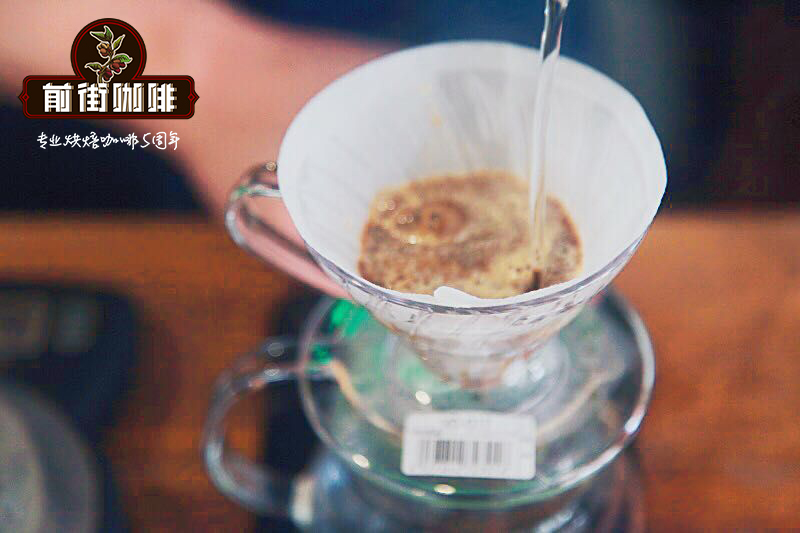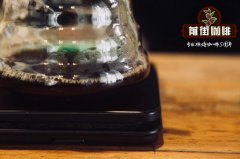Brazilian coffee Brazil Ipanema Manor introduction.

Professional coffee knowledge exchange More coffee bean information Please pay attention to coffee workshop (Weixin Official Accounts cafe_style)
Founded in 1969, Fazenda Ipanema is an iconic Brazilian estate with more than 5500 hectares and 14 million coffee trees in 25 countries around the world. As a founding member of the Brazilian Specialty Coffee Association (BSCA) since 1991, sustainability has always been part of Ipanema's philosophy, as well as its commitment to social programs and activities that improve the natural environment as well as the human dimension. In 2002, it passed the certification of EUREPGAP Code and UTZ Kapeh Code. In addition, it passed the certification of Rainforest A, CSC, Fairtrade USA, C.A.F.E., AAA Ecolaboration etc.
Fazenda Ipanema is an apartment group (the Condomínio Aliança) formed by three groups of The Bozano, Simonsen and Gafisa. It purchased the first farm of 230 hectares, located in the southern city of Alfenas in Minas Gerais. It was named São Joaquim and changed its name to IPANEMA AGROINDESTRIA S.A. in 1970. In 1972, it purchased The Campo Verde, Conquista, Vitória and Capoeirinha estates with a total area of 7,000 hectares and began to plant coffee and orange fruit trees. In 1986, it completed the first stage of planting 3000 hectares of oranges and 3000 hectares of coffee. In 2002, it purchased Fazenda Rio Verde, a coffee estate with a history of more than 100 years. It has an area of 1750 hectares. Today, Ipanema Estate has 5,500 hectares of coffee planting area. It is the largest estate in Brazil. It grows 14 million coffee trees and produces 7,000 metric tons of green beans annually. Its business is mainly in trade and production. It ranks as the eighth coffee company in the global coffee market. It has agents in 27 countries.
At the beginning of the 2013/2014 season, Ipanema embarked on further coffee growing tests at Fazenda Rio Verde, looking for potential possibilities to create higher quality coffee. If possible, it is hoped to find out under what conditions it is sufficient to improve yield and quality. During the experiment, the estate tried various methods, such as high ventilation frames, dry environments with shade, comparing varieties and planting altitudes, and trying innovative treatments. For the 2014 harvest, Ipanema used a variety of harvesting methods, such as mechanical harvesting and selective picking, to try to find the most suitable method for this climate. In 2015, the estate picked ripe coffee cherries every week during the growing season and determined the best harvest time point for each block. For each batch, a ripening curve is proposed based on its location, altitude, direction of sunlight, rainfall conditions and variety to ensure high quality cup flavor, and the optimal harvest period for each block lasts only about 20 days. In 2016, hundreds of trials were conducted over four months to evaluate the best drying techniques. A 2000 m2 elevated trellis and 800 m2 shaded sun drying environment were constructed, and a 3000 m2 concrete terrace was added for drying. Two new dryers were also used: a 7000-liter horizontal dryer and a 5000-liter three-tier vertical dryer. In 2017, Ipanema further focused on refining the pilot experience of the past few years. During this time, the estate's Q-Grader Cup testers and a team of coffee experts tested more than 180 micro-batch samples.
Ipanema selected 32 of the 69 micro-blocks in Fazenda Rio Verde above 1000 meters above sea level to take special care of the three varieties of coffee grown here, yellow kadui, yellow bourbon and Red Acaia, in a separate and special manner.
Important Notice :
前街咖啡 FrontStreet Coffee has moved to new addredd:
FrontStreet Coffee Address: 315,Donghua East Road,GuangZhou
Tel:020 38364473
- Prev

Costa Rican coffee Costa Rica Salaka Manor introduction.
Professional coffee knowledge exchange more coffee bean information Please follow the coffee workshop (Wechat official account cafe_style) Salaka Manor (Finca Salaca) is now owned by the Maria Elena family, almost all of the estates are planted with Villalobos species, while the Velassa odd species (Villa Sarchi) is derived from a natural mutant of the ancient Bourbon and has long adapted to Goddali.
- Next

Brazilian Coffee Minas Coffee Manor.
Professional coffee knowledge exchange more coffee bean information please follow the coffee workshop (Wechat official account cafe_style) Brazil is the world's largest coffee producer accounts for about 33% of coffee production, but because Brazil is located in the tropical rain forest, the terrain is flatter and less high-altitude mountain forests, most coffee is grown in low-altitude non-volcanic soil, and there is not much shade as shade.
Related
- Does Rose Summer choose Blue, Green or Red? Detailed explanation of Rose Summer Coffee plots and Classification in Panamanian Jade Manor
- What is the difference between the origin, producing area, processing plant, cooperative and manor of coffee beans?
- How fine does the espresso powder fit? how to grind the espresso?
- Sca coffee roasting degree color card coffee roasting degree 8 roasting color values what do you mean?
- The practice of lattes: how to make lattes at home
- Introduction to Indonesian Fine Coffee beans-- Java Coffee producing area of Indonesian Arabica Coffee
- How much will the flavor of light and medium roasted rose summer be expressed? What baking level is rose summer suitable for?
- Introduction to the characteristics of washing, sun-drying or wet-planing coffee commonly used in Mantenin, Indonesia
- Price characteristics of Arabica Coffee Bean Starbucks introduction to Manning Coffee Bean Taste producing area Variety Manor
- What is the authentic Yega flavor? What are the flavor characteristics of the really excellent Yejasuffi coffee beans?

